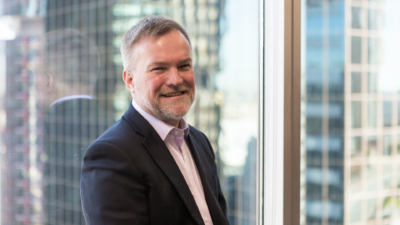War, inflation trump cyber-fears for 2023
According to the DTCC annual survey, almost 70 per cent of respondents rank ‘geopolitical risks and trade tensions’ as the biggest threat to the global economy in 2023 with inflation (61 per cent) a close second.
Cyber-risk (58 per cent) headed the DTCC fear index last year with a pandemic, unsurprisingly, then still weighing on the industry and cited as economically dangerous by 52 per cent of those surveyed: just eight per cent rate an infectious disease as a global threat in the most recent study.
Inflation was the other big-mover this year jumping from fifth (34 per cent) in 2021 to second in the latest DTCC risk-list while the threat of a US economic slowdown and Federal Reserve monetary policy also rose up the charts to round out the top five spots. Concerns about a European slowdown and/or debt crisis lurked just outside the five biggest fears, garnering a vote from 31 per cent of respondents.
“The dramatic increase in concerns around geopolitical risks and trade tensions, inflation and U.S. economic slowdown reinforce how quickly the threat landscape evolves and the importance of regularly monitoring the external environment to gain intelligence into potential shocks to market stability,” said Michael Leibrock, DTCC chief systemic risk officer (photo at top).
“As a result, firms must continually review their risk management practices and procedures, conduct scenario planning exercises and ensure their operating structure is nimble to protect themselves and the broader industry.”
Absent from the 2021 survey, US political uncertainty (21 per cent), housing markets (18 per cent) and commodity market volatility (19 per cent) also registered on the DTCC ‘Systemic risk barometer’ this year.
In other significant year-on-year changes crypto/fintech fears fell to just nine per cent from 25 per cent in the previous study while climate change dropped to 22 per cent, or almost half the 2021 result.
The DTCC survey, which has been running since 2013, also picked up some differences between the US and rest-of-the-world participants: US-domiciled respondents rated cyber-risk and their own domestic economic and political dangers much higher than other global counterparts, who in turn are more fearful of an Asian economic slowdown, climate change and a housing market collapse than their North American peers.
A core part of the global financial infrastructure, DTCC handled almost US$2.4 quadrillion in securities transactions in 2021 while providing custody and asset servicing for over US$87 trillion on behalf of investors in 177 jurisdictions.











